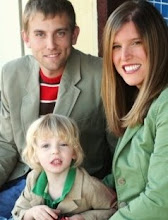Anthony Flew was a well known Atheist. In 2004 he became a theist because of what he says were overwhelming evidences from a scientific and logical viewpoint of the need for an Intelligent Designer.
He wrote a book called There is a God about his journey from Atheism to Theism. He was in his 80's when he converted to Theism. He is not a Christian, yet his case for Theism is very strong. I have posted a passage below from his book.
Gerry Schroeder first referred to an experiment conducted by the British National Council of Arts. A computer was placed in a cage with six monkeys. After one month of hammering away at it (as well as using it as a bathroom!), the monkeys produced fifty typed pages - but not a single word. Schroeder noted that this was the case even though the shortest word in the English language is one letter (a or I). A is a word only if there is space on either side of it. If we take it that the keyboard has thirty characters (the twenty-six letters and other symbols), the the likelihood of getting a one-letter word is 30 times 30 times 30, which is 27,000. The likelihood of getting a one-letter word is one chance out of 27,000.
Shroeder then applied the probabilities to the sonnet analogy: "What's the chance of getting a Shakespearean sonnet?" he asked. He continued:
"All the sonnets are the same length. They're by definition fourteen lines long. I picked the one I knew the opening line for, "Shall I compare thee to a summer's day?" I counted the number of letters; there are 488 letters in that sonnet. What's the likelihood of hammering away and getting 488 letters in the exact sequence as in "Shall I compare Thee to a Summer's Day?" What you end up with is 26 multiplied by itself 488 times - or 26 to the 488th power. Or, in other words, in base 10, 10 to the 690th.
[Now] the number of particles in the universe - not grains of sand, I'm talking about protons, electrons, and neutrons - is 10 to the 80th. Ten to the 80th is 1 with 80 zeros ofter it. There are not enough particles in the universe to write down the trials; you'd be off by a factor of 10 to the 600th.
If you took the entire universe and converted it to computer chips - forget the monkeys - each one weighing a millionth of a gram and had each computer chip able to spin out 488 trials at, say, a million times a second; if you turn the entire universe into these microcomputer chips and these chips were spinning a million times a second [producing] random letters, the number of trials you would get since the beginning of time would be 10 to the 90th trials. It would be off again by a factor of 10 to the 600th. You will never get a sonnet by chance. The universe would have to be 10 to the 600th times larger. Yet the world thinks the monkeys can do it every time.
Thoughts?
Subscribe to:
Post Comments (Atom)


.jpg)


2 comments:
....and lean not on your own understanding....
Good stuff
Post a Comment